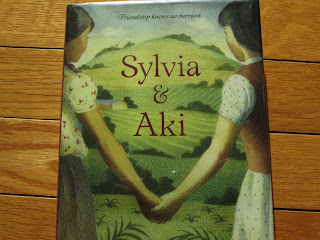“Shall I tell you what
I think are the two qualities of a work of art? First, it must be the
indescribable and second, it must be inimitable.” Renoir
This quote puts into words what I felt when I read “The Metamorphosis” and other stories by Franz Kafka. I will only discuss his most famous story
here: “The Metamorphosis”.
I will refrain from writing about the other
tales in this collection. Suffice it to say that there are situations and
experiences in life that cannot be explained. Yet they find a way to be
expressed in Kafka’s tales.
The Metamorphosis is the comical account of a
man who transforms into an insect.
“When
Gregor Samsa awoke one morning from troubled dreams he found himself
transformed in his bed into a monstrous insect.”
Even his voice changed:
"It was unmistakably his own voice as of old, but mixed in with it, as
if from below, was an irrepressible painful squeaking and this only left the
sound of the words clear for a moment, before distorting them so much that one
could not tell if one had heard them properly.”
Interestingly, Gregor was not concerned about
the changes he’d undergone but about the fact that he had to get ready to go to
work. He knew that if he did not take the train on time he would be in
trouble. He was right. The chief clerk came to his house to admonish
him.
The possibility of losing his job waylaid his
future even though he had not missed a day at work for five years.
The lack of trust in him surfaces and he
reflects on it:
“Why on earth was Gregor condemned to work for a firm where the
slightest lapse immediately gave rise to the gravest suspicion? Were all the
employees, then, scoundrels to a man; was there not one loyal, dedicated worker
among them, when the mere failure to devote an hour or two to the firm one
morning was enough to drive crazy with remorse,-- so much so that he was
actually incapable of getting out of bed? Would it really not have been enough
to send an apprentice round to inquire—assuming all this chasing up to be
necessary at all? Did the chief clerk really have to come in person, so
demonstrating to the whole innocent family that the investigation of this
suspicious affair could be entrusted to his wisdom alone?"
The chief clerk was not in the least worried
about Gregor’s medical condition but about the fulfillment of his duties:
“
Her Samsa,” the chief clerk now called out, raising his voice, “what’s the
matter with you? Here you are barricading yourself in your room, giving only
yes or no for an answer, causing your parents a great deal of unnecessary
anxiety, and besides -- I merely mention this in passing – neglecting your
duties towards the firm in a positively outrageous manner.”
The interactions with his family and his
surroundings are carefully carved. They are rich in nuances about Gregor’s new
existence.
Gregor was worried
about his family responsibilities, but not about his identity. Although he had
to endure the consequences of being an insect I could not find a single line
stating that he was willing to return to his previous condition. He even began
to enjoy it:
“In particular he enjoyed hanging from the ceiling; it was quite
different from lying on the floor; one could breathe more freely, one felt a
faint pulsation through the whole of one’s body, and in Gregor’s state of
almost contended distraction up there it could happen to his own surprise that
he let himself go and fell smack on the floor. But now, of course, he had his
body under much better control than before and even when falling from such a
height he did himself no damage.”
What is Franz Kafka
telling us in “The Metamorphosis”?
I believe “The Metamorphosis” is a clever
allegory. This humorous tale portrays the experience of being an independent
thinker.
Changes are transformative. “The Metamorphosis” symbolizes those changes
that somebody who is open to learning is expected to accept. However,
independent thinkers are often vilified, derided, ridiculed, belittled,
misunderstood and even ignored.
If you are drawn to surreal literature and
allegories you may want to read “The Tent”, a collection of stories by Margaret
Atwood.











